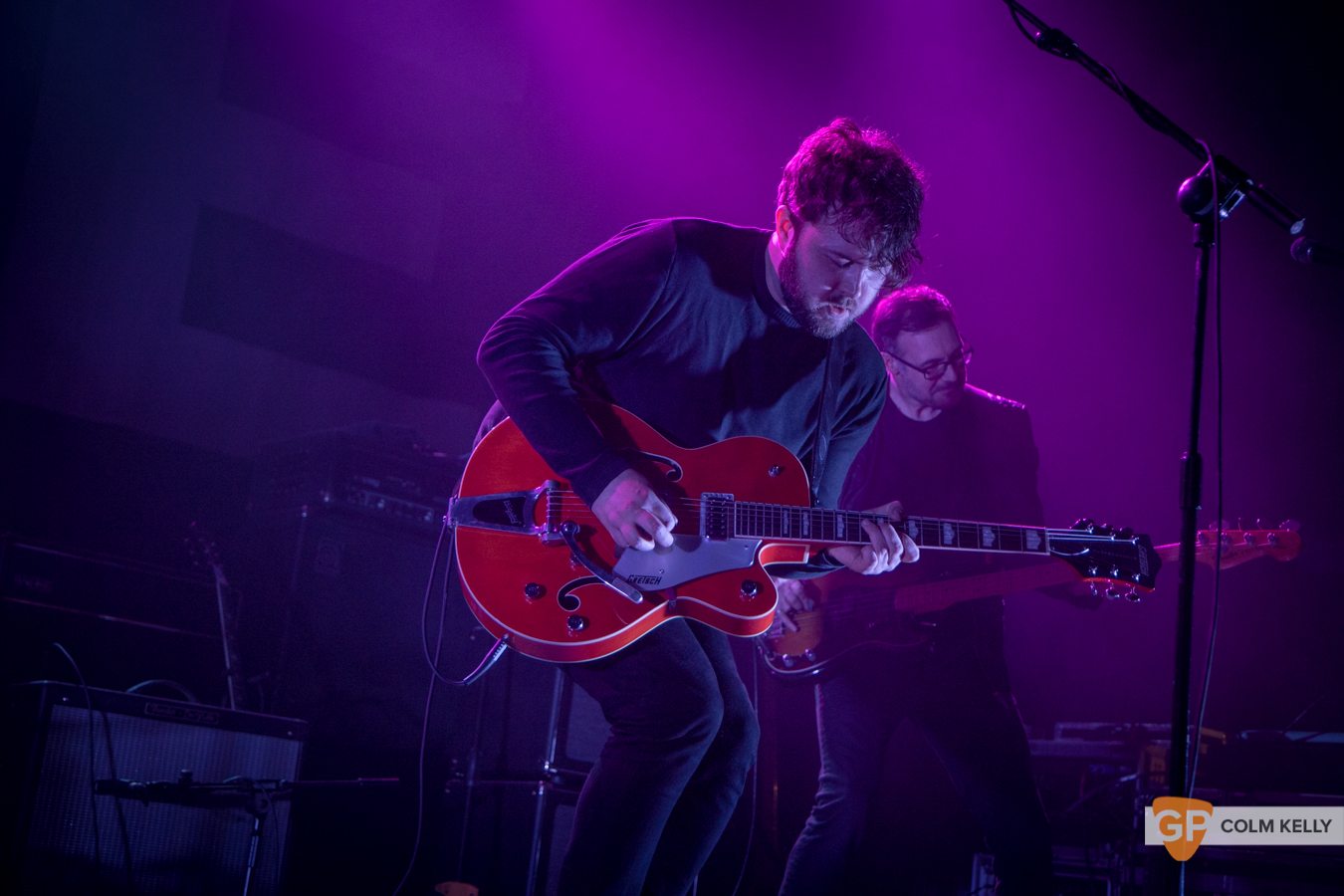It’s hard enough to get noticed when releasing new music under normal circumstances. The race to get covered in local national and international press is a constant battle for all musicians. In a small country like Ireland with a relatively small number of media outlets, it can be hard to for Irish acts to get covered while the brute force of Hollywood and the major label system dangle stars in front of editors. In the unprecedented climate we live in musicians are faced with new quandaries. Should they plough ahead with releasing their album as planned or push it to a further date?
There are obvious pros and cons to both options, but in reality both options are high risk. Postpone and you run the risk of getting knocked out by the heavyweight PR machine that will be pushing more big names than it normally would be at any one given time. Release now and you run the risk of not being noticed as people glue their eyes to Netflix and News. Data from countries in lockdown indicates a big drop-off in streaming. Dua Lipa aside, it would seem, for the most part people are ‘comfort listening’ to old favourites rather than consuming new music as vigorously as they normally would.
In Ireland, The Scratch generated a lot of good by bringing the digital release forwards by 3 weeks. Another Irish act who have decide that fortune favours the bold are Columbia Mills, whose second album ‘CCTV’ is being released this Friday (April 17th). Lead singer Fiachra Treacy acknowledges that deciding to stick or twist at this time wasn’t an easy decision.

“We debated that for a while and part of the reason was because we put everything into the live show and to release an album and not be able to gig it is a big problem for us. But we thought ‘people need music in their lives’, we shouldn't hold back on it. I certainly appreciate it when a band releases a new album. I'm putting on new stuff when I'm sat at home or I go walking, so we should do the same.”
The social distancing restrictions are having more of an impact on smaller acts without huge streaming numbers who rely on concert income, something which Fiachra acknowledges.
“It's very frustrating that we can't do any gigs,” laments Fiachra. “We've built up a very loyal fanbase, it mightn't be the biggest, but they really seem to respond to what we do, and they come along with us, they feel like they belong.”
“We had a few showcases line-up up in London and Germany and obviously we won't get to do those so we have to rely on the album getting across digitally - people discovering us online rather than at a festival, which is where we tend to get people on board. I think once people see us live, they really understand where we are coming from. It's hard having that promotional tool taken away from you.”
However, the support from fans has been extremely heart-warming for Fiachra in the current climate. “For us it's important to be able to fund the next album, anything after that is a bonus. Obviously, people won't be able to go into record stores any time soon, but we've got a good few orders to post out.”
“I can't wait to get the album out there,” says Fiachra excitedly. “We want people to listen to the album and go ‘Fuck yeah’, they didn't just release the four best songs on the album as singles.”
However, Fiachra is slightly concerned at the way the album may be received due to the dark themes explored within it
“It does have an apocalyptic feel, but I wouldn't want it associated with what's going on right now, but people may identify with it because of what they are going through right now”
He does concede, though, that there is a certain irony to releasing a disco tinged track called Isolate right now.
“Since we've released the track listing (for the album) a lot of people have mentioned that: 'Oh God, you've written a song'...we wrote that over a year ago. It definitely has nothing to do with what's going on right now, but there is an irony to it - just the name of the song. It is kind of a disco-y track. it is probably one of the stranger tracks on the album,” says Fiachra, acknowledging the influence of Donna Summer’s I Feel Love on Isolate.
“We absolutely love that track. We listen to it all the time, we've always wanted to give a little nod to it somewhere. Ken, who does our electronics, sent it to us and we said: ‘let's do that, it sounds cool’”.
Surprisingly, one of the album’s standout moments, The Greatest Love, almost didn’t make the cut at all.
“It was a song that we debated whether it should go on the album or not. It is a banger, but it's quite dark. We spent a couple of years making the album and we disregarded a lot of songs and eventually picked the ten tracks. When you're so involved you don't see the wood from the trees.”
“The Greatest Love is towards the end because it gives an indication of where we are going next. I'd really like to explore that banging electronic side of Columbia Mills for as long as the songs don't suffer.”

To help Columbia Mills find the corpses in the copse they brought in Irish production legend Rob Kirwan - who had produced their debut album - to mix ‘CCTV’, a move that proved to be telling for the record.
“We'd argue over sounds and little bits of a song to the point that you'd end up resenting the song,” says Fiachra, illustrating how band politics can get in the way of the creative process. And he doesn’t shy away from his own shortcomings in this regard.
“I found myself getting too obsessed with things that don't matter that much, little guitar riffs, a synth sound. Rob produced our first record and he taught me a good lesson. Step back and listen to the song as a whole and forget about everything that didn't make it onto the track”
“It's good when someone who doesn't have any skin in the game comes along with fresh ears. Rob (Kirwan) left loads of stuff out that some of us might have wanted, but it was great - he was an independent referee to make those decisions and that was really important”
This process was probably eased somewhat by the unusual way in which Columbia Mills write songs in the first place. The band record their rehearsals and sift back through them on a regular basis in search of gold.
“We call it the graveyard,” says Fiachra laughing. “We'll often go back to it and listen through and pick bits out, it's great to go back and find stuff, maybe change a key and try and fit it into whatever we're doing right now. It helps get us through problems if you're stuck with a song.”
Columbia Mills began life in 2014 with a string of guitar lead singles which won them comparisons with the likes of The Jesus and Mary Chain. The band has since developed in a way that many people wouldn’t have foreseen, slowly but surely undergoing an electronic evolution. Despite this, Fiachra believes that the band are still regarded as a traditional guitar band.
“I would love for those people who dismissed us earlier on to have a listen to our new album. I think with the EPs we showed a progression of the sound into the electronic and this album is the most electronic so far, and from here we're gonna go further in - we've written the songs for the third album.
“We finished the second EP with a track called History with a load of electronics. It was our way of saying 'we're jumping from this to this'. For ourselves, we had to say this is where we are going."
That is not to say that Columbia Mills have abandoned their roots, they are just having more fun than ever experimenting with new sounds.
“The opening track, Car Crash TV, probably represents the two sides of what we do best, because it morphs from a melancholy folky opening into an electronic banger and I just love the diversity between those two sounds.”
Perhaps the one constant throughout Columbia Mills six year existence is the bittersweet nature of Fiachra’s lyrics, which deal with his own mental health issues in a frank manner with a hopeful pessimism that doesn’t totally discount the possibility of a better tomorrow.
“It's kind of a selfish, perverse way of me getting through certain things,” says Fiachra, when we enquire about the therapeutic properties of songwriting. “Hopeful pessimism is exactly how I'd describe it (too). I do tend to write about dark things that happen but there's always a little bit of hope in there."

“On this album there are resolutions to a lot of the problems that I have been writing about before. It's coming to solutions now,” he says, emphatically. “As you get older you become a little bit more secure in your skin and you're able to go ‘fuck it’, this is what happened, whatever - we have a solution and we can move on.
“It's definitely very therapeutic, especially when we play some of the songs live. It might put you in a bad place, but you remember those times and you realise that you've moved on from them. To be able to write a song about your problems is a great tool. I don't know where I'd be if I didn't have that outlet because I was never the most forthcoming person when it comes to talking about things, but I'd always write about them.
"There's darkness that some people have in their brain. I have to touch on that, even on a subconscious level, because it's there. It's kind of a cliché now, but it's important that we talk about them.”
Fiachra has also used his songwriting as a tool to express his love and appreciation for his bandmates and express his camaraderie with them in their own difficulties.
“The five of us are very close. When I see them going through things, I find myself writing about that as well. And I never really talk to them about that, but I can see, one of them might give me a little look in rehearsal. It is important for me to not just write about all my shit because I can see what's going on in their lives too. And a lot of what's going on in their lives will affect everybody in the band, so we all try to be there for each other.
“We're a small group of young men. We are the endangered group when it comes to mental health, especially when you see the suicide rates of young men killing themselves in Ireland.”
However, Fiachra is always careful not to overstep the mark and embarrass his bandmates by being “too literal.”
“I'm not too forthcoming, but you have to put the feelers out and show that you are there. You have to show them that you have their back,” noting, “we're all different in terms of how much we want to give away.”
There’s a newfound emphasis on playlists and radio play in a world without live music. However, Fiachra says that Columbia Mills aren’t prepared to sacrifice their artistic integrity simply to make a playlist.
“We've found when we've done radio edits it's definitely compromised the material,” says Fiachra, when we enquire about the difficulty in getting airplay when only one of the songs on your two albums is under four minutes long.
“I would love to be able to write short songs that are able to satisfy what I'm trying to say. I'm working on that, trying to have the songs shorter when they are born rather than cutting them down afterwards. If I hear a short song that grabs me, I'm always in awe of whoever wrote it. It's definitely something I'm challenging myself to do, the art of writing a song and getting all the elements in across in 3 and a half minutes."
“A long song never bothered me,” adds Fiachra “I know it's not a great thing in terms of radio and PR, but getting on the radio has never been our main concern. It was always to get the music that we wanted to make out into the world.”
'CCTV' is out April 17th. Columbia Mills play The Button Factory, Dublin on September 18th. Tickets here.
